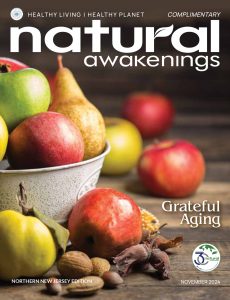Is “Mental Health” Really Mental?
Such issues as depression and anxiety are typically handled by “mental health” practitioners, and many who do various types of therapy (e.g., talk, group, CBT, EMDR) are quite helpful to their patients. However, the viewpoint that these are “mental” health issues arguably already pigeonholes these conditions to a limited set of treatment approaches. The comprehensive “holistic”/functional viewpoint would immediately see the possibility of roots in not only the mental/emotional arena, but also in the physical, behavioral, and spiritual realms, opening many more diagnostic, and especially treatment, options. Many people seek natural, minimally pharmaceutical solutions to these issues, and here, the holistic/functional approach is integral to unearthing these solutions.
Most pharmaceuticals work to alter neurotransmitter availability in the nervous system, such things as serotonin (Prozac, Zoloft, etc.), norepinephrine (Effexor, Pristiq), both (Cymbalta), and GABA (Xanax, Ativan, etc.) And individual’s neurotransmitter profile can actually be lab-tested, so drug selection can be more precisely targeted. But this same testing can guide a practitioner to create a nutrient program customized to one’s neurotransmitter levels once determined.
Further simple testing can be done on other parameters that affect one’s disposition and emotions. Tests of such biomarkers as histamines (the same body chemicals that cause hives), pyrroles, vitamins (especially B vitamins and vitamin D3), and essential fats all play a huge role in how we “feel”. Erratic reactions to ingested sugar (hypoglycemia) can profoundly lead to ups and downs and create irritability and anxiety.
If one is sensitive to specific foods, (not the same as an allergy, not so acute, but nonetheless potentially devastating), every possible version of “mental health issue” can be the result if eaten. Subclinical hypothyroidism can be “depressing”, and hyperthyroidism can source nervousness and more. An exhausted adrenal can yield fatigue, anxiety, poor emotional resilience to stress, and panic attacks. Toxins of all sorts are known for their effects on the nervous system, be they from petroleum products/plastics, mold or heavy (poisonous) metals like mercury, lead and arsenic). The probiotic population in our gut (good, bad or indifferent) has such an enormous impact on the nervous system that it has been termed “the third brain”. And hormonal imbalances, even if modest, can wreak havoc on how we experience daily life and relationships.
Add to this a lack of exercise, eating of empty calories, lack of adequate or proper sleep, failure to connect socially (lack of community), lack of a spiritual program or belief, lack of nurturing/inspirational people in one’s life, and it is clear that as useful as psychotherapy and medications can be, there is an enormous amount of ground to be covered in a truly comprehensive exploration to find permanent, deep, natural solutions for “mental health” issues, involving careful consideration of every aspect of mind, body and spirit. The above list is in fact just the tip of the iceberg, and it’s an iceberg well worth exploring in depth, as it can affect and even determine how fully we ultimately enjoy and appreciate the very lives we are living. Bottom line: The best answers do not always or necessarily come in a bottle of pharmaceutical pills.
Dr. Robin Leder trained with Dr. Robert Atkins of The Atkins Diet fame, and has guided thousands of patients to achieve their optimal weight using her vast knowledge of the field. She is located at 235 Prospect Ave., Ste. LB, in Hackensack. For more information, call 201-525-1155 or visit RobinLedermd.com.




























